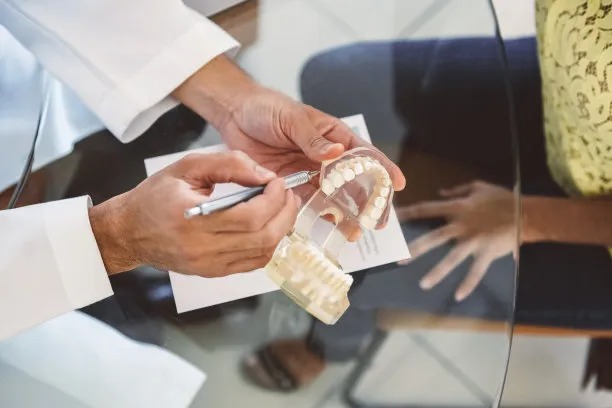Understanding the Silent Threat Periodontal Disease and Your Oral Health
Summary: Periodontal disease, a silent threat to oral health, is a common yet often overlooked condition that can lead to serious consequences if left untreated. This article delves into the causes, symptoms, prevention, and treatment of periodontal disease, emphasizing the importance of maintaining good oral hygiene to prevent its progression.
1. Causes of Periodontal Disease

Periodontal disease is primarily caused by the build-up of plaque and tartar on the teeth, which harbor harmful bacteria that can infect the gums and surrounding tissues. Poor oral hygiene, smoking, genetics, and certain underlying medical conditions can also contribute to the development of periodontal disease.
Furthermore, factors such as hormonal changes, stress, and poor diet can impact gum health and increase the risk of periodontal problems. Regular dental check-ups and cleanings are essential in preventing the onset of this condition.
In severe cases, untreated periodontal disease can result in tooth loss and even have implications for overall health, as the inflammation from gum disease has been linked to conditions such as heart disease and diabetes.
2. Symptoms of Periodontal Disease
Recognizing the early signs of periodontal disease is crucial for prompt intervention and treatment. Common symptoms include swollen or bleeding gums, persistent bad breath, receding gums, loose teeth, and sensitivity to hot or cold foods.
If you experience any of these symptoms, it is important to seek professional dental care to prevent the progression of the disease. Early stage gum disease, known as gingivitis, is reversible with proper treatment and improved oral hygiene habits.
However, if left unchecked, gingivitis can advance to periodontitis, a more severe form of the disease that can lead to irreversible damage to the teeth and supporting structures.
3. Prevention of Periodontal Disease
Maintaining good oral hygiene practices is the key to preventing periodontal disease. This includes brushing teeth at least twice a day, flossing daily, and using antimicrobial mouthwash to reduce bacterial growth.
Regular visits to the dentist for professional cleanings and thorough examinations can help detect and address any signs of gum disease early on. Adopting a healthy diet rich in fruits and vegetables, and avoiding tobacco products, can also significantly reduce the risk of developing periodontal issues.
By taking proactive steps to care for your oral health, you can minimize the chances of experiencing the detrimental effects of periodontal disease and maintain a healthy smile for years to come.
4. Treatment of Periodontal Disease
When periodontal disease has progressed to a more advanced stage, treatment may involve scaling and root planing to remove plaque and tartar deposits below the gumline. In severe cases, surgery may be necessary to repair damaged tissues and restore gum health.
Antibiotics or antimicrobial treatments may be prescribed to combat infection and prevent further damage to the gums and bone structure. It is important to follow the dentists recommendations and maintain good oral hygiene habits post-treatment to prevent recurrence of the disease.
By addressing periodontal disease in a timely manner and following through with recommended treatments, individuals can preserve their oral health and prevent long-term complications associated with this silent yet serious threat.
Summary:
Periodontal disease poses a significant risk to oral health, with its causes rooted in poor oral hygiene practices, lifestyle factors, and genetic predispositions. Recognizing the symptoms, implementing preventive measures, and seeking timely treatment are essential in combating this common yet potentially destructive condition. By prioritizing oral health and working closely with dental professionals, individuals can safeguard their smiles and overall well-being from the silent threat of periodontal disease.
This article is compiled by Vickong Dental and the content is for reference only


